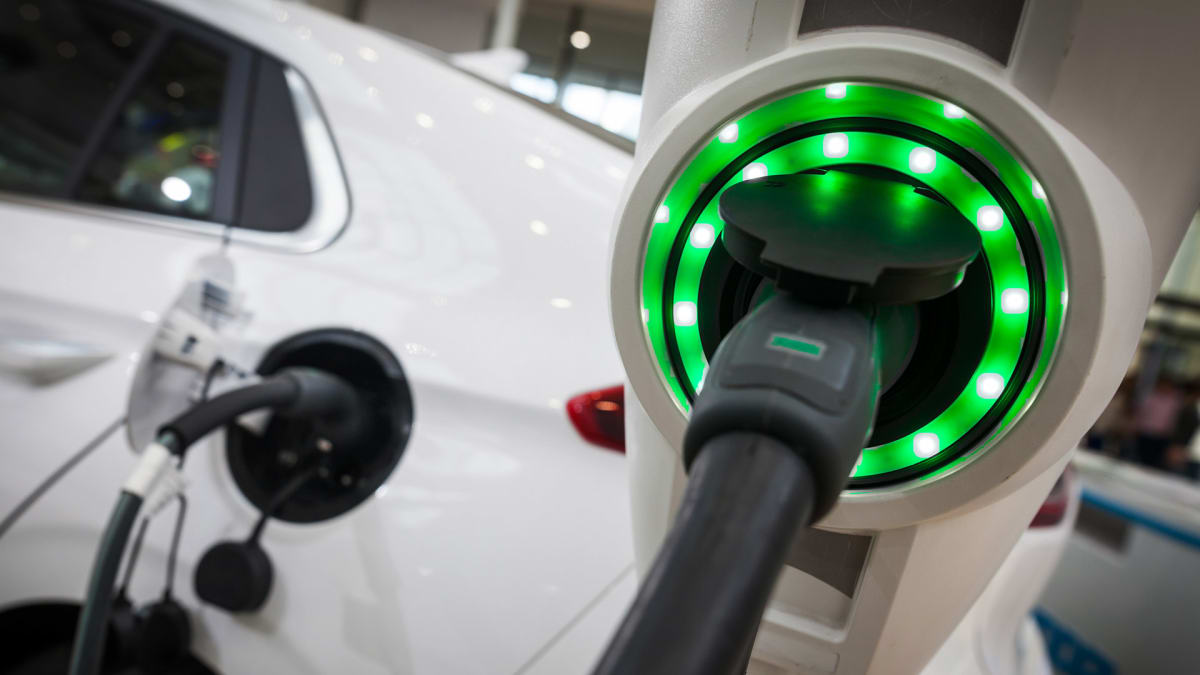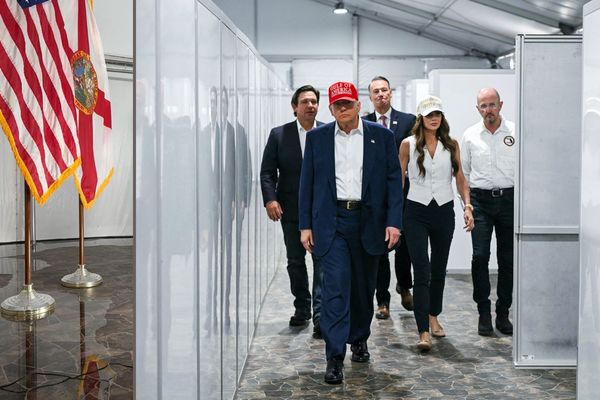
The California Air Resources Board on Aug. 25 put the internal combustion engine on notice.
Declaring that global warming is “a significant threat,” the agency, which is charged with protecting the public from the harmful effects of air pollution, banned the sale of new gasoline-powered vehicles starting in 2035.
"California experiences a wider range of the effects of climate change and suffers these effects to a greater degree than other states in the nation," the resolution said, "including extreme and prolonged drought, dwindling supplies of fresh water from loss of snowpack, more extensive and severe wildfires, and rising storm surges and sea levels.”
The move followed California Gov. Gavin Newsom's 2020 executive order to shift the the largest auto market in the U.S away from the internal combustion engines.
The board's action was hardly the Golden State's first attempt to combat air pollution. In 1966, California established the first tailpipe emissions standards in the nation.
California Out Ahead of Other States
The board went on to adopt the nation's first nitrous oxide emissions test for cards and and led the way to the development of the catalytic converter, which remove smog-forming hydrocarbons from exhaust gas.
"California is out ahead of other US states in banning internal combustion vehicle sales after the mid-2030s, though it is no longer alone," said Timothy Johnson, professor of the practice of energy and the environment at Duke University,
"I expect the trend to continue at the state level, and US cities and the federal government are getting into the act, for instance, by setting goals for fleet vehicle electrification," he added.
Other states are indeed following California's example. New York, Washington, Massachusetts, Oregon and Vermont are expected to adopt a similar 2035 mandate. Minnesota and Virginia may also follow suit,
Outside of the U.S., the European Union is looking to ban the sale of new diesel and gasoline cars and vans. In October, the European Council and European Parliament came to a provisional agreement on the idea.
"So, I think it is fair to say that we are at an EV tipping point," Johnson added. "In addition to government efforts to electrify transportation, the global auto industry no longer considers electric vehicles a niche, and many manufacturers are now planning for an all-electric future.. And the same applies to utilities."
Johnson said he expects these collective actions will "create a critical mass that will eventually turn public opinion and get EVs into places that are not actively promoting the transition."
"But a lot must be done if these policies are to succeed," he said.
Battery Production Needs to Ramp Up
One of the challenges will be increasing battery manufacturing. Edward Anderson, a professor at the University of Texas at Austin's McCombs School of Business, said automakers have forecast plans to build about 50 million electric vehicles by 2030.
"Estimates are that world battery production in 2030 will only be sufficient to enable building 30 Million EVs, leaving a gap of 20 million vehicles that won't have batteries in 2030," he said. "Ramping up battery plants can be done in principle in two to three years."
However, Anderson said ramping up lithium mining and lithium chemical refining will take closer to a decade.
"So, it's probably too late to make up the 20 million EV gap, even if we start now," he said.
The net result, Anderson said, "is that battery prices are going to increase over the next few years, which feeds into one of the bigger criticisms of the mandate, which is that EVs are more expensive than gas vehicles."
Johnson also noted the need for increased battery production as it will mean "a lot more mining and public acceptance of this activity on a short time frame if we want to manage the economic impacts of supply constraints."
"Mining and mineral processing can be cleaner, but there is no escaping the need to move dirt and disrupt the landscape," he said. "And all that electricity needs to be clean. Solar and wind are not the only forms of zero-carbon electricity available, but they must scale well beyond what we see today."
'Using EVs as Punching Bag'
This, in turn, Johnson said, "brings us back to demand for land and the resulting landscape changes."
"If politicians want to use EVs as a punching bag, issues like this will unfortunately provide likely targets," he said.
Another concern is the lack of charging stations, which Anderson said "disadvantages those with long commutes or those who live in apartments."
"It will also disadvantage those who live in cold states, because—unlike gas cars which use waste heat from the engine—the batteries will have to be drained to produce heat," he said.
Resistance is also coming on the political front.
In May, the Republican attorneys general of 17 states filed a lawsuit charging that Michael Regan, the administrator of the U.S. Environmental Protection Agency, of violating the Constitution’s equal sovereignty doctrine by granting California the authority to set emissions restrictions that are stricter than the national limit.
The EPA reinstated California's authority under the Clean Air Act to implement its own emissions standards, which had been revoked in 2019 under former President Donald Trump.
"Today we proudly reaffirm California’s longstanding authority to lead in addressing pollution from cars and trucks,” Regan said in a March 9 statement. "With today’s action, we reinstate an approach that for years has helped advance clean technologies and cut air pollution for people not just in California, but for the U.S. as a whole.”







